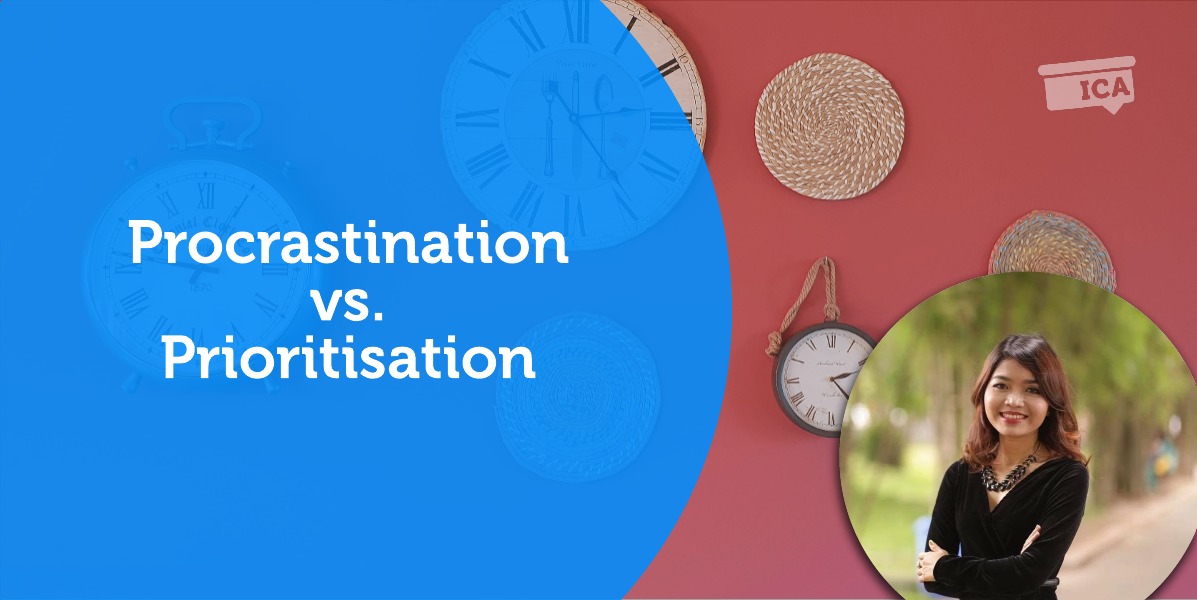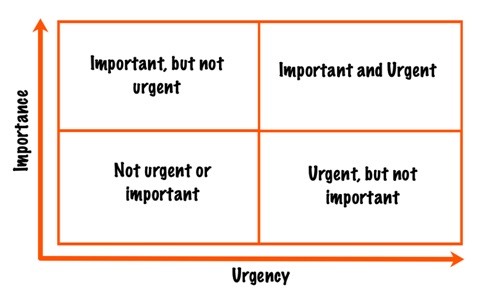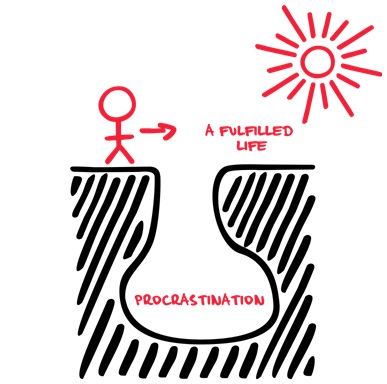
A Coaching Power Tool Created by Laura Cho Yee Swe Myint
(Career & Executive Coach, MYANMAR)
While we waste our time hesitating and postponing, life is slipping away. Seneca
A lot of the times we hear the excuse that people often love leaving things to the last minute. They justify their actions by claiming that they are most productive under pressure.
However, scientific studies show that the opposite is true. Putting things off until the very last moment creates fertile ground for stress, guilt, and ineffectiveness.
Next thing you know, it’s the end of the day and your important task remains unfinished.
For many people, procrastination is a strong and mysterious force that keeps them from completing the most urgent and important tasks in their lives with the same strength as when you try to bring like poles of a magnet together. It’s also a potentially dangerous force, causing victims to fail out of school, perform poorly at work, put off medical treatment or delay saving for retirement. There are mainly four different types of procrastication that make us delay the action that we need to do.
Anxious procrastination
Neil Fiore, the author of The Now Habit, defined procrastination as
a mechanism for coping with the anxiety associated with starting or completing any task or decision.
Fiore suggested that people who procrastinate a lot are usually bad at managing their time and often end up scheduling in more work than they can actually do, leaving no time for fun activities or resting. Fiore suggested that not fulfilling these unrealistic expectations causes stress and anxiety which some people deal with by procrastinating.
Fun procrastination
The fun procrastinator would rather be doing anything except that one dreaded task. After all, there are so many fun and exciting things you could be doing instead, how can you bear to start that boring project?
“Plenty of time” procrastination
Many people find it difficult to start a project when they know the deadline is a long way off. This type of procrastination is clearly visible in students who often struggle to start an essay earlier than a few days before the deadline.
You may also have tasks that don’t have deadlines. Take a look at your to-do list. Chances are you have at least one item that you’ve been putting off for weeks if not months. It’s something you want to do, you know it will make things better in the long run, but you keep putting it off.
Perfectionist procrastination
Perfectionists are always striving for the best and, as such, are constantly criticizing their own work. For some perfectionists, the fear of failing, or producing work to a low standard, can be so overwhelming they never actually get around to starting anything.
Prioritization is a key to get things done
Prioritization is the activity that arranges items or activities in order of importance relative to each other. There are tasks that need to be done today because their deadline is today. There are tasks that need to be done today because they’re incredibly important to the projects you’re working on. So, which comes first, the urgent or the important? Realistically, there is an overlap between the two. The best thing you can do is make a list of everything you need to get done. You can also use the Eisenhower Matrix which is a popular tool for prioritization.
Eisenhower Matrix
A popular example is the Eisenhower Matrix, which uses importance and urgency as its value. You evaluate each task based on its urgency and importance and then place each task in the correct quadrant based on your evaluation.

- Important and urgent tasks are your top priorities.
- Important but not urgent tasks are lower priorities—things you should schedule for later.
- Urgent but not important tasks are good for delegation.
- Not urgent or important tasks are things you probably just shouldn’t do.
By placing each task on your list into a quadrant on the Eisenhower Matrix, you can determine what you need to work on now, what you need to work on later, what you need to delegate, and what you need to delete from your list.
Self Application
When I started looking into the requirements of the graduation checklist from ICA, I feel overwhelmed for the items that I need to finish. Then what came into my mind as I have 18 months to finish those items and I felt relaxed. Time flies passing the busy life traveling on business trips and skipping classes, it came to my attention one day that I only had a few months left to get through the program. The first thing I did was prioritizing what are the urgent and important items to start working on using the Eisenhower Matrix. It has helped me to clear my mind and focus on each item.
On the midway doing that, procrastination came into my mind when working on my papers. I fell into the trap of “plenty of time” and a perfectionist procrastinator suffering the anxiety to start working on the papers. What helped me to shift my thinking was my peer coaches who helped me using our peer coaching sessions to work on my mental block. The questions that shifted my thinking were:
Coaching Application
Prioritizing work tasks, lifestyle choices, and activities are something we all do each day. Sometimes we do it intentionally, and sometimes we just do and the result is we get derailed from priorities. Coaches use several techniques to support clients prioritizing intentionally.
These range from exploring values to ranking competing priorities. Sometimes this is done in conversations and other times with visuals. Because coaches co-create the process with clients, coaches both know different techniques and tools, and they also create techniques or tools at the moment with their clients.
The first step the coach can do to help his client move into action is to assess the reality of what is making them procrastinate. This will create an awareness of what is going on in their world. Once the client has gained new clarity, the coach can go deeper and invite him to explore what the triggers are that cause procrastination. This is the moment when the client has the opportunity to move forward and start planning for the prioritization.
Here are a few ideas to help support your client to create a shift in perception:

Resources:
- Darren – Four Types of Procrastination and how to beat them
- Jessica Greene – How to Prioritize When Everything Feels Important